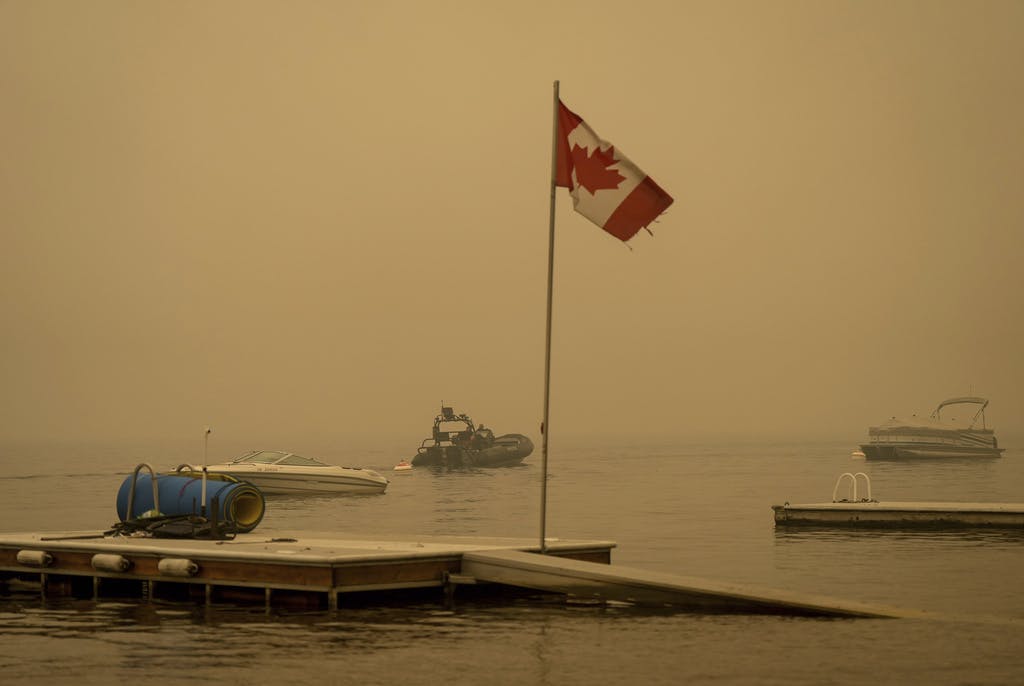Canada Cries Foul After Facebook Blocks News Coverage Across the Country
In June, Trudeau’s liberal government passed legislation that requires companies like Facebook and Google to pay local publishers for the news articles shared on their respective platforms. Facebook said, ‘No.’

The Canadian government is learning about the law of unintended consequences after Meta removed news from its citizens’ timelines on both Facebook and Instagram in a spat over revenue-sharing with publishers there.
Since Facebook took the action, dozens of wildfires have broken out across the western reaches of Canada. Users in those regions are now no longer able to follow news and developments about the situation, which Prime Minister Trudeau said Monday was putting lives at risk.
“Instead of making sure that local journalists are fairly paid for keeping Canadians informed on things like wildfires, Facebook is blocking news from its sites,” Mr. Trudeau said on the sidelines of a cabinet retreat on Prince Edward Island, according to a report by the CBC.
“Right now in an emergency situation where up-to-date local information is more important than ever, Facebook’s putting corporate profits ahead of people’s safety, ahead of supporting quality local journalism,” he said.
In June, Mr. Trudeau’s liberal government passed legislation, the Online News Act, that requires companies like Facebook and Google to share revenue with local Canadian publishers by paying them for the news articles shared on their respective platforms. The rules are set to take effect at the end of the year.
Facebook responded to the legislation by making all news content, both written and audiovisual, invisible to its users in Canada. The content of publishers and broadcasters outside of Canada will also be unavailable to users there, it said, and users will not be able to share links to news articles on the platform. Google also said it would be removing news from its offerings in Canada but has yet to follow through on the threat.
“We have been transparent and have made it clear to the Canadian government that the legislation misrepresents the value news outlets receive when choosing to use our platforms,” Facebook said in a statement announcing the move. “The legislation is based on the incorrect premise that Meta benefits unfairly from news content shared on our platforms, when the reverse is true.”
The company added, “News outlets voluntarily share content on Facebook and Instagram to expand their audiences and help their bottom line. In contrast, we know the people using our platforms don’t come to us for news.”
Since the announcement, press outlets in Canada have been filled with articles about how the broad audiences they once enjoyed coming to them via Facebook links have winnowed in some cases to only a few thousand from hundreds of thousands. The rule is said to be affecting small publishers in rural areas particularly hard.
Criticism of Facebook’s decision by government officials has ramped up since a series of wildfires broke out across Canada’s western reaches. The situations in British Columbia and the Northwest Territories, where tens of thousands of people have been ordered to evacuate, are reported to be changing by the hour. The country is having what has been described as the worst wildfire season on record, with thousands of fires burning across the country.
Canada’s transport minister, Pablo Rodriguez, urged Facebook to lift its ban in light of the fires, calling it totally unacceptable and saying it prevents people fleeing the wildfire from accessing vital information. “I warned them during conversations in the past of the risk of blocking news,” he told reporters on a call Friday. “I’m asking to go back on their decision and allow people to have access to news and information in Canada.”
For its part, Facebook has so far refused to back down. In a statement released Friday, the company pointed out that Canadians can still gain access to their local media online via other apps and that official information on the fires and other emergencies is still widely available and disseminated on the platform. Just not news articles about those announcements.
Facebook users in Canada can continue to use it “to connect with their communities and access reputable information, including content from official government agencies, emergency services and non-governmental organizations,” the company said.

